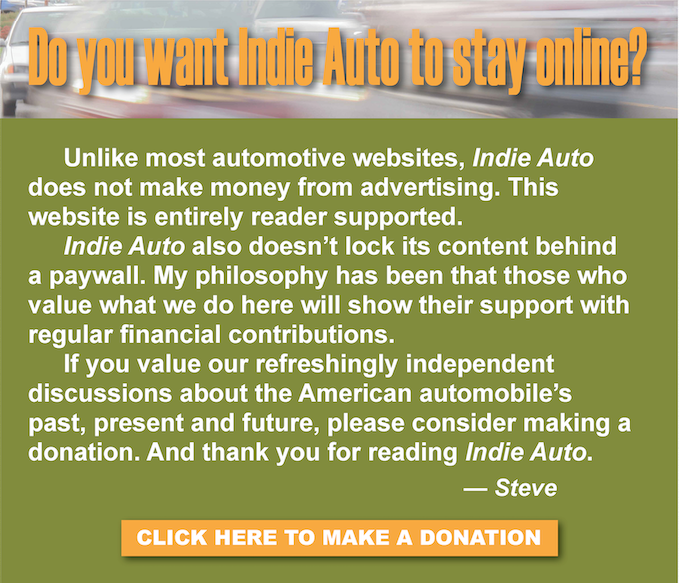
I have spent most of the day fixing a refrigerator. The good news is that it seems to work properly now. The bad news is that my tinkering was marked by quite a bit of anxious trial and error.
My fix-it project was a good reminder about why Indie Auto doesn’t try to appeal to “gearheads.” There are already plenty of websites that can explain the mechanics of, say, a famous engine far better than I ever could. I come from a family of engineers but somehow didn’t pick up that aptitude.
That’s why I have focused Indie Auto elsewhere, such as on business strategies, marketing and design. And why I have experimented with the kind of content you generally won’t find in ad-funded publications, such as satirical advertising.
Indie Auto has also been more willing to take editorial risks than most other auto history websites when it comes to controversial issues such as climate change. This partly reflects my journalism training, which emphasized the importance of following one’s news judgment even when it is unpopular. That’s not a recipe for high readership, but I may be too old to change.
You might be asking: Hey, how about cranking out some more automotive content? I’ll get to that, but my next time-sensitive task is to pay Indie Auto’s quarterly state taxes. As a reader-supported publication, I feel quite appreciative of those who have shown their financial support. These readers are quite literally keeping this website online. So thank you.
If you’d like to join the club, go here.
Share your reactions to this post with a comment below or a note to the editor.






Can’t disagree with your thinking. There’s a couple of reasons I come here, primarily because your take on a given subject is usually somewhat out of “left field” compared to what I normally read elsewhere. If I’m looking for straight nuts-and-bolts historical description, I’ve already got a couple of well-thumbed sites that I regularly turn to. Hell, I’m willing to bet that you could even do an article on EV’s without it turning into the usual “they’re stupid and should die” slagfest that I can usually count on at any non-EV auto site.
I don’t try to come out of “left field” so much as I try to follow the data where it leads. That reflects my background as a journalist, policy analyst and scholarly researcher.
One of the ways that plays out is that I take climate science seriously. Back in the day that wasn’t a controversial thing to do but apparently it is now.
By the same token, I try to look at EVs from a nuanced standpoint. At the macro level we clearly need to make some major shifts in order to respond to climate change. However, on a personal level I can’t yet justify buying an EV. I don’t drive enough anymore to justify the relatively high purchase costs.